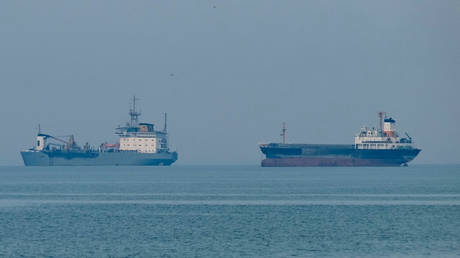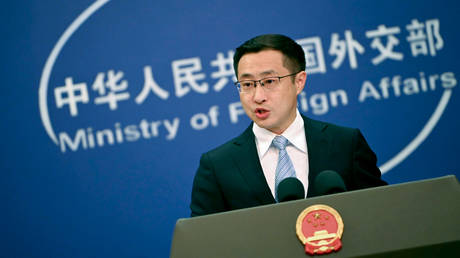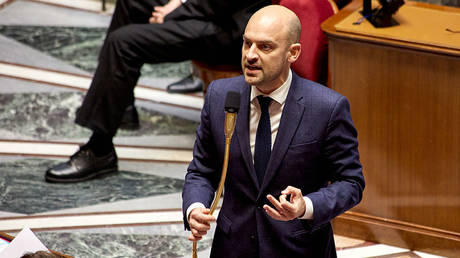
Washington is “paying a ransom” to West Jerusalem by targeting Tehran’s energy sector, the Foreign Ministry has claimed
The US has no right to sanction Iran’s energy and transport sectors over its missile attack on Israel, Foreign Ministry spokesman Esmail Baghaei has said, describing the attack as a “legitimate” act of self-defense.
The US Treasury Department on Friday announced sanctions against a fleet of vessels it accused of transporting Iranian oil, while the State Department simultaneously announced sanctions on six foreign companies allegedly involved in the Iranian petroleum trade. The Treasury Department said these penalties were imposed “in response to Iran’s October 1 attack on Israel,” in which Iran fired around 200 ballistic missiles at Israeli military targets.
Speaking to reporters in Tehran on Sunday, Baghaei described the sanctions as “illegal and unjustifiable.” Iran’s missile attack – which came after Israel assassinated Hamas leader Ismail Haniyeh in Tehran, Hezbollah leader Hassan Nasrallah, and a senior Iranian general in Beirut – was carried out “in accordance with international law to exercise the inherent right to legitimate defense,” he said, according to Iran’s IRNA news agency.
Israel is still weighing its response to the missile attack, and is widely expected to target Tehran’s oil or nuclear infrastructure. The US has cautioned West Jerusalem against either course, and Baghaei decried the latest sanctions as an attempt by Washington to placate Israel into holding off on striking Iran’s energy sector.
“The US move to impose sanctions has no legal or logical basis and amounts to paying a ransom to the rogue Israeli regime,” he said.
Any strikes on Iran’s nuclear sector would carry a serious risk of escalation, while damage to its oil industry would cause global prices to skyrocket, in turn driving up the cost of gasoline at American pumps ahead of next month’s presidential election.
In a statement on Friday, the Treasury Department claimed that the latest sanctions would hamper Iran’s efforts “to channel revenues from its energy industry to finance deadly and disruptive activity – including development of its nuclear program, the proliferation of ballistic missiles and unmanned aerial vehicles, and support to regional terrorist proxies.”
However, the US believes that Iran’s nuclear weapons program has lain dormant for the last two decades, Reuters reported on Friday, citing two American officials. “We assess that the Supreme Leader has not made a decision to resume the nuclear weapons program that Iran suspended in 2003,” a spokesperson for the Office of the Director of National Intelligence (ODNI) told the news agency, referring to Iranian Supreme Leader Ayatollah Ali Khamenei.
This view is echoed by CIA Director William Burns, who told a conference last week that while Iran has allegedly enriched uranium to near weapons-grade levels, there is “no evidence” that Khamenei has ordered the construction of nuclear weapons. Iran has long insisted that its nuclear program, which began in the 1950s with US support, is peaceful.
Burns’ remarks were portrayed by Reuters as an effort to convince Israel not to attack Iranian nuclear sites.
However Israel decides to respond, Iran will retaliate proportionately and in kind, a source in Tehran told RT on Thursday. In the event that any civilians are harmed in a potential attack or that civilian areas are targeted, Tehran will be prompted to revise its nuclear doctrine, the individual told RT, without elaborating.




